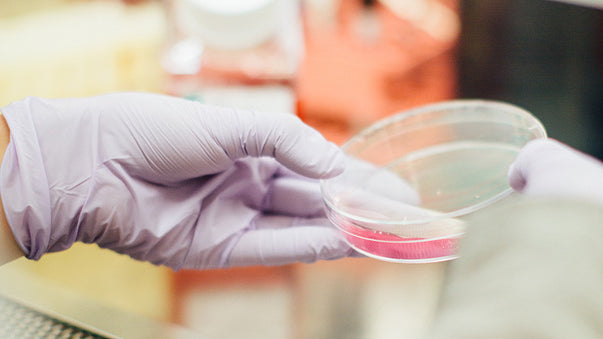Therapy or Enhancement?

Welcome to this new issue of Pulse, your weekly newsletter focused on human enhancement today and tomorrow, brought to you by Thrivous!
Every week we scan tens of intriguing headlines about encouraging research advances that could one day permit curing cancer, preventing heart attacks, restoring sight to the blind, improving the memory of mentally challenged patients, and more.
These advances are, slowly but steadily, moving from research to clinical practice, out of research labs and into hospitals where they will, one day, spawn operationally efficient and effective therapies to improve the lives of countless patients.
However, the line between therapy and enhancement is blurry: the same technologies that can be used to restore normal abilities can also be used to enhance normal abilities. For example, giving perfect sight and memory to everyone.
Or, more likely, to the wealthy. It’s good to hear about new ways to prevent heart attacks (see below), but it’s less good to realize that only the wealthy can afford currently available treatments.
The therapy vs. enhancement debate is especially heated in the genetic engineering community. CRISPR/Cas9 (see Pulse 3) is a gene editing technique that allows scientists to cut and paste DNA sections, opening the way to operational, systematic Lego-like genetic engineering. Chinese scientists recently used the CRISPR technique to successfully correct genetic mutations in normal human embryos in the lab. It seems evident that this technology, once it’s perfected, could be used to create designer babies.
Alzheimer’s is a disease, but is not having total recall also a disease? Apparently no, because most of us don’t have total recall. Cancer is a disease, but is death also a disease? Apparently no, because everyone dies. But, if you think of it, a viable definition of “disease” is “deviation from a desired norm.” According to this definition, not having total recall is a disease. And death, too.
Here’s a selection of recent news that I found especially interesting and relevant to the considerations above:
New drug effective to prevent heart attacks, but overpriced. A new cholesterol drug called Evolocumab, approved in 2015 and also known as Repatha, has been shown to reduce the risk of heart attack, according to research results presented at a recent meeting of the American College of Cardiology and published in New England Journal of Medicine. A study that followed 27,000 patients for two years shows a 20 percent decrease in heart attack for patients treated with the drug. The catch, as reported by USA Today, is that Repatha is very expensive - treatment costs $14,000 per year.
Toward effective cancer therapies based on engineered oncolytic viruses. Spanish researchers in Barcelona have created genetically modified viruses that infect only tumor cells without affecting healthy tissues. Oncolytic viruses, genetically engineered to attack tumor cells, have powerful anticancer effects, but the key to successful therapies is in limiting their toxicity to the rest of the body. The results of the open access study, published in Nature Communications, show that adenoviruses - a family of viruses that cause infections of the respiratory tract - can be genetically modified to have attenuated viral activity in normal cells, while maintaining and even increasing activity in tumor cells. The technology has been patented and is ready for licensing.
CRISPR gene editing successfully repairs the genome of human embryos in the lab. Chinese bioengineers at Guangzhou Medical University have corrected genetic mutations in three normal human embryos using the CRISPR genome editing technique, New Scientist reports. Previous experiments on abnormal embryos had achieved only moderately encouraging results, but the new study, published in Molecular Genetics and Genomics, shows more promising results, indicating that CRISPR could one day permit repairing the genome of human embryos. Though the technology is far from the point where it could be safely used for editing embryos, its therapeutic potential is impressive - but so is its potential to create designer babies.
Electric brain stimulation could improve memory. Scientists at Imperial College London have found ways to improve short-term working memory, by stimulating the brain with electricity to synchronize brain waves. The scientists hope that the research results, published in eLife (open access), could one day help patients with traumatic brain injury, stroke or epilepsy. Of course, therapeutic developments could also be used for enhancement - improving everyone’s memory.
Nanotechnology-based retinal implants could one day help restore sight. Researchers at University of California San Diego (UCSD) have developed a new type of retinal prosthesis that could one day restore the ability of neurons in the retina to respond to light, helping patients suffering from neurodegenerative diseases including macular degeneration, retinitis pigmentosa and loss of vision due to diabetes. The study, published in Journal of Neural Engineering, shows promising response to light in a rat retina interfacing with a prototype prosthesis built from nanowires and wireless electronics.
More Articles
Don't miss a beat! In our Pulse Newsletter, Thrivous curates the most important news on health science and human enhancement, so you can stay informed without wasting time on hype and trivia. It's part of the free Thrivous newsletter. Subscribe now to receive email about human enhancement, nootropics, and geroprotectors, as well as company news and deals.
Read more articles at Thrivous, the human enhancement company. You can browse recent articles in Thrivous Views. See other Pulse Newsletter articles. Or check out an article below.
-
Anti-Aging Therapy on the Horizon
Welcome to this new issue of Pulse, your weekly newsletter focused on human enhancement today and tomorrow, brought to you ...
-
The Fast March of Synthetic Biology
Some of the news below touches on the emerging science of synthetic biology - the design and creation of life ...


